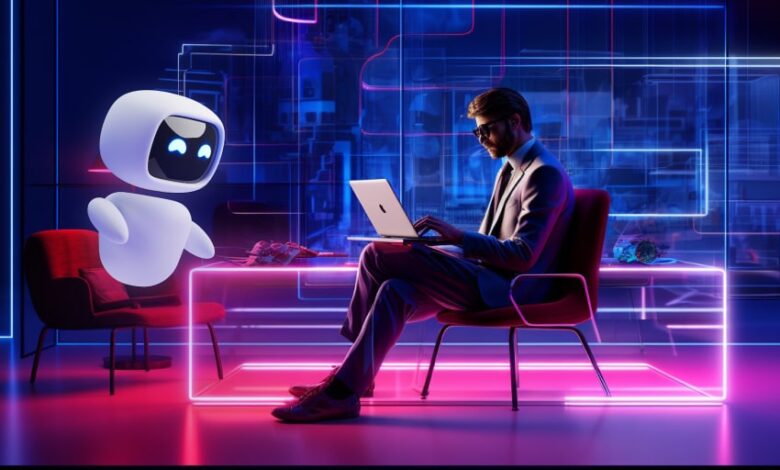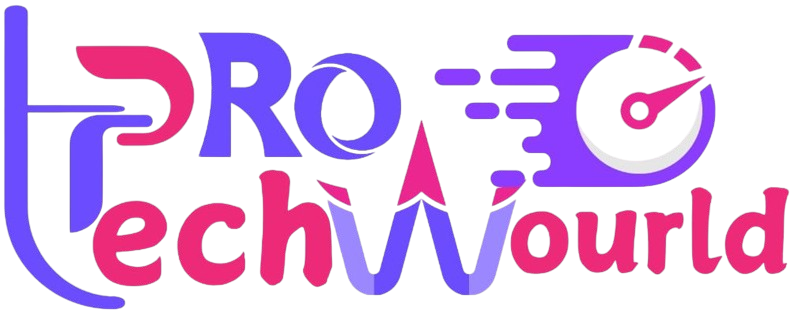The Future of Work: Balancing Automation, AI, and Human Potential

Automation and artificial intelligence have drastically changed the face of the modern workforce and revolutionized various industries. As such regions that house robust tech ecosystems, like mobile app development companies in San Francisco, therefore need to adapt to the changing ways related to AI-driven processes.
Here, we see how automation and AI impact work as companies like a mobile app development company in San Francisco thrive while advancing the human workforce in an increasingly digital world.
Redefined Work Roles in the New Digital Age
AI has changed the nature of many roles, especially in manufacturing, finance, and tech. As apparent in the rise of mobile app development company in San Francisco and Miami, companies have realized that automating work is essential as it empowers their workforces to focus more on creativity and strategic initiatives.
While such newer forms of automation and AI are creating fears over jobs being displaced, they are leading to new roles and would require unique skills. The jobs thus threatened by automation are the routine ones and the hazardous ones.
On the positive side of this, more specialized skills related to AI maintenance, data analytics, and strategic management of projects have emerged. Judgment, creativity, and critical thinking are what make the human element effective in sectors like mobile app development.
Skill Evolution: The Human Edge Over Machines
Changing work continuously means that skills change at a rate never seen before. With artificial intelligence, there is a growing demand for digital fluency, analytical skills, and adaptability, which will lead to the emergence of new skills.
Now, most employees are concerned that they will be out to “compete” with AI. This is very far from being true because AI is a multitool that not only amplifies human potential but also gives them tools to deal with complex problems and scale ideas more effectively.
The case in point is that for example, more and more tech companies in San Francisco, and Miami increasingly seek employees who, apart from being fluent in code, also find creative and socially aware ways of using it.
Hybrid Work Models Flexibility
AI-enabled tools also opened up workspaces to flexibility and the hybrid/remote work model, almost impossible to implement today. Companies can work even more efficiently without needing people to be in-house. Flexibility has changed the nature of workspaces since workplace dynamics have changed completely.
This is especially true for states like San Francisco and Miami, where top talent could be hired from the rest of the world due to the convenience of app development companies being able to work remotely.
The evolution of digital tools has provided companies with access to global talent, reduced operational costs, and ensured a more inclusive work environment. These AI-driven hybrid work arrangements also gave employees greater autonomy and balance, leading to higher job satisfaction and productivity.
Ethical AI: Ensuring Fairness in the Automated Workplace
As companies are now increasingly integrating their firms with AI systems, there is a pressing need to relate these developments to appropriate ethical positions. Automated systems can introduce unintended biases in hiring, task delegation, and even apps – violating fairness and diversity principles.
In developing mobile applications, ethical AI practices can help ensure that fair and respectful apps concerning user data are developed. A company in San Francisco developing mobile applications would thus have to consider these ethical challenges as it developed AI-powered applications for clients, respecting their privacy without biases and aligned with social expectations.
The core components of AI ethics are transparency, accountability, and inclusivity. Companies that adopt such values when implementing AI technologies become the epitome of virtue and earn customer trust. In this sense, through the ethical use of AI, technology companies can be key influencers in defining a better future of work.
Bridging the Skills Gap: Training for Tomorrow’s Jobs
Proper and effective AI adoption has to be complemented by continuous training within the workforce to minimize the gap between skills. Companies, while trying to maximize the use of AI but simultaneously minimizing disturbance, have to ensure that employees either within the company at present or the newly recruited ones are properly skilled.
Teaching them how to use new AI-driven tools for efficiency to help them learn from and adjust to such technological advancements as a San Francisco-based mobile app development company hones in on its core competencies that way, not only will a worker be equipped to execute competently in a role they present in but also be future-proofed in terms of industry shifts.
Building a Sustainable Workforce for the Future
By fire, AI and automation will not eventually replace human employees but augment their capability toward a more innovative, efficient, and flexible workforce. Technologies such as these are the doorway to unimagined innovation and growth possibilities for industries like mobile app development.
Companies like those creating mobile apps in San Francisco and Miami are at the forefront of this change. The mobile application development company in San Francisco and a mobile app development company in Miami, by embracing these technologies, help advance the sustainability goals of an industry while getting ahead of its competition.
It can build a world where AI and human creativity are starting to make meaningful progress by bringing forward technology with human-centered values.
Conclusion
The future of work is undoubtedly linked to the advancement of AI and automation: from across industries-mobile app development, in particular-to conventional futures for themselves, mobile app development companies in San Francisco, which are renowned for their strong tech sectors, have opportunities and responsibilities related to the integration of such advancements.
The way forward to a company like this in San Francisco is trying to balance the best of technology with more of human creativity, with the right kind of automation assisting rather than replacing manpower.






